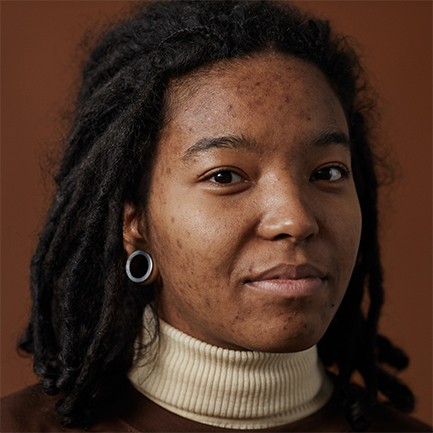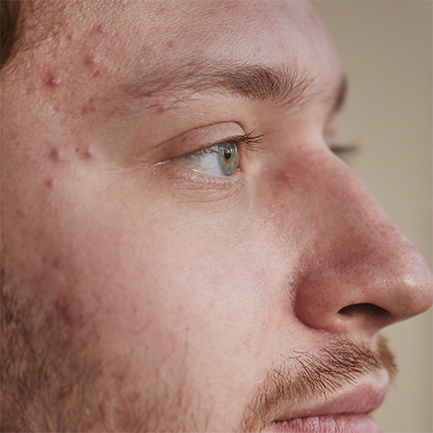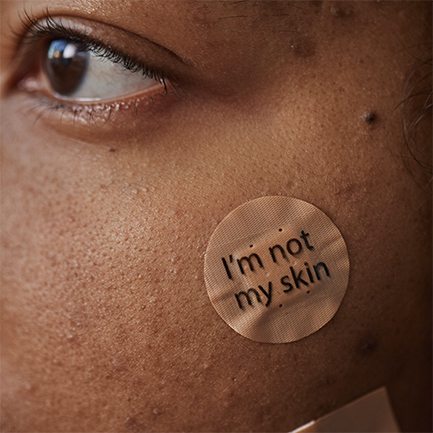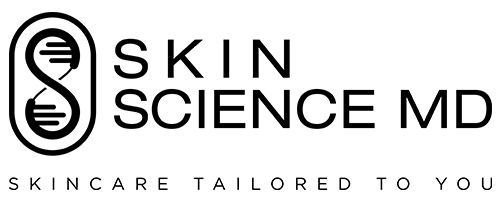Acne
It’s a real pain – but we can help make it go away!
There are 3 main causes of acne: clogging of pores, hormonal influences, and inflammation.
What treatments are there for acne?
In short – mild to moderate acne can be treated with topical creams and washes. Severe acne typically requires more.
Each type of acne responds best to specific type of treatment. Trust your board-certified dermatologist to provide you with a skin regimen that fits your specific needs.
Topical treatments include:
Benzoyl Peroxide, topical antibiotics, and topical retinoids.
Benzoyl Peroxide or Salicylic Acid-based washes are a good place to start.

Dr. Contestable’s favorite over-the-counter acne washes include Cerave Acne Foaming Cream Cleanser (For Face - 4% BP) or PanOxyl Acne Foaming Wash (For Body - 10% BP). Benzoyl peroxide can bleach fabrics, other side effects include skin irritation, redness, dryness, etc.
Topical retinoids (adapalene/tretinoin/tazarotene) are the FOUNDATION of any good acne treatment plan. Adapalene 0.1% can be found over-the-counter. Dr. Contestable’s favorites are – Differin Gel or La Roche-Posay Effaclar Adapalene Gel. Typically applied at night.
Topical antibiotics like clindamycin or erythromycin can also help. We recommend clindamycin with a benzoyl peroxide wash or combined cream (such as DUAC) given that acne causing bacteria, c. acnes, can become resistant to clindamycin when used alone.
Sometimes, oral antibiotics are used to kick-start a topical regimen and aid in faster improvement of acne. However, long term antibiotic use is possibly associated with developing inflammatory bowel disease and inappropriate continued use has public health implications as it creates more resistant bacteria.
How do I used Retinoids? They make me – red, scaly, dry, irritated.
It is best to apply only a small, pea-sized amount (total), to entire face 10 minutes after washing the face in the evening three times per week (apply to dry face). You can increase the number of applications per week as tolerated – up to once nightly. Side effects include dryness and irritation, but your face will adjust to the medications slowly over time.
Avoid application to a wet face. Also applying moisturizer on top of the thin layer of retinoid can help prevent these unwanted side effects. The “sandwich” technique can also help. This involves applying a light amount of lotion to the skin then the retinoid followed by another light application of lotion.
If you experience redness, dryness, flaking, or irritation – it’s a good idea to take a night or two off and just use a lotion instead 😉

Also, tretinoin and tazarotene are deactivated by sunlight, so it is best to use your retinoid at night.
Dr. Contestable’s favorite lotions for dryness from acne treatment are – Cerave Daily Moisturizing Lotion or PM Facial Moisturizing Lotion, and La Roche-Posay Double Repair Face Moisturizer. If you feel you are feeling very dry consider La Roche-Posay Cicaplast Baume B5 Soothing Therapeutic Multi-Purpose Cream or Cerave Moisturizing cream.
My acne treatment isn’t working, what do I do?
Stick with your treatment plan. Patience is key. Acne can flare before you start to notice improvement during the initial period of a new treatment plan. It can take 6-8 weeks before seeing improvement.
Does Diet Contribute to Acne?
Research on this topic is still very limited. At this point, there is some limited data to suggest the skim milk and foods high in sugar content (think sodas) can worsen acne. Additionally, we anecdotally find it very common that work-out supplements (pre-workout, protein, etc.) also worsen acne. As you can imagine, not everyone who drinks skim milk or takes in protein supplements get acne. But for those who have acne, it is reasonable to consider cutting out these parts of your diet. It may make your treatment more successful.Hormonal Acne
How do we treat hormonal acne?
The same medications above should still be considered in an acne regimen. Adding spironolactone or oral contraceptive pills like Yaz, Spintec, Mononessa, etc. can oftentimes benefit patients experiencing hormonal acne.
Topical anti-inflammatory agents like dapsone (Aczone) can help with larger, sore, more inflamed acne lesions, but this should still be used daily.
Acne and Pregnancy

Should I stay on the same medications?
Pregnancy and breastfeeding may require modification to your treatment plan. It is important to consult with your OB/GYN or Dermatologist prior to using any topical or systemic agents for acne. Many acne medications are contraindicated during pregnancy. Some potential acne treatments might include azelaic acid and topical clindamycin.
Source: American Academy of Dermatology (https://www.aad.org/public/diseases/acne)
For Physicians only (or patients of Dr. Contestable) – “Acne – Patient Handout”

